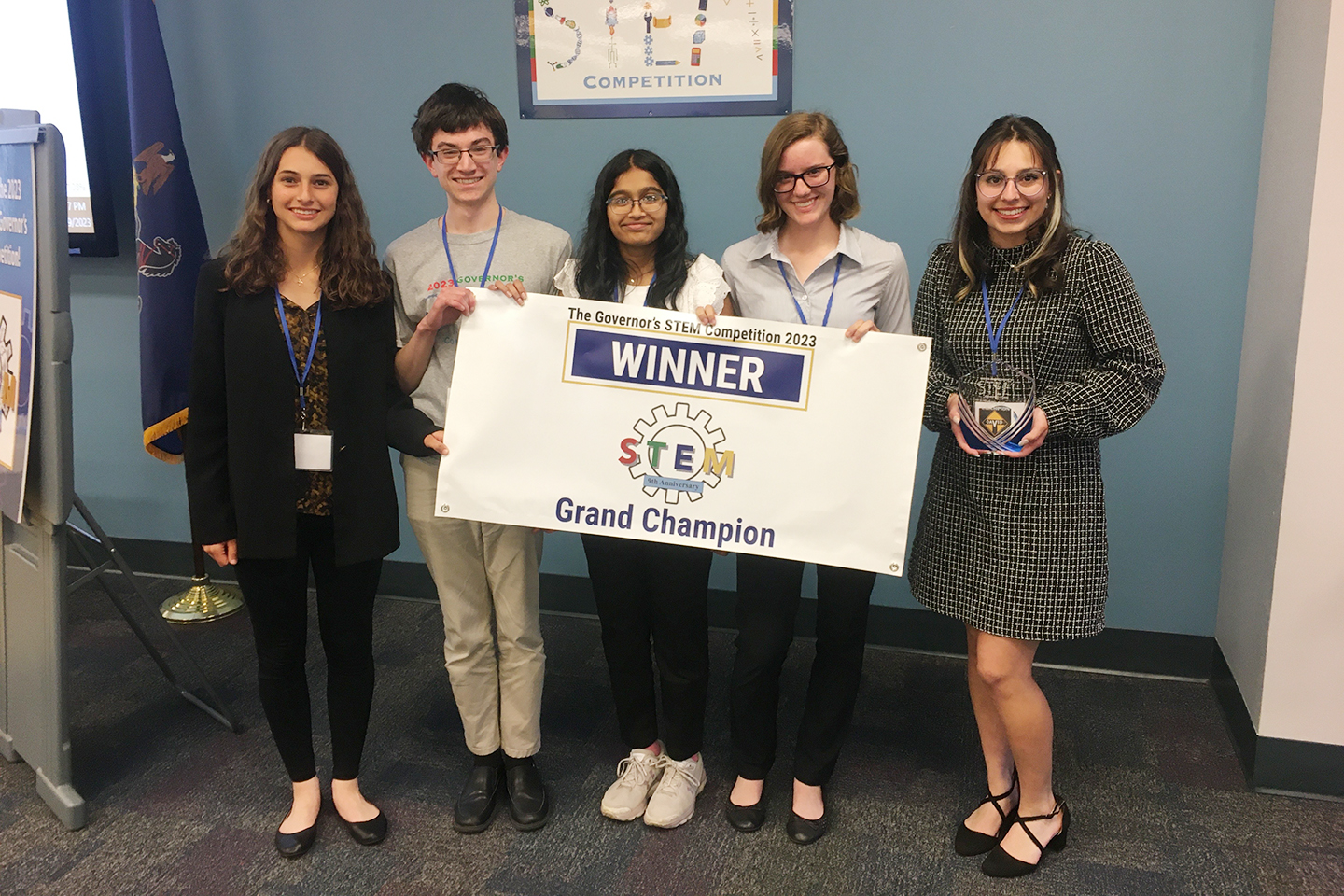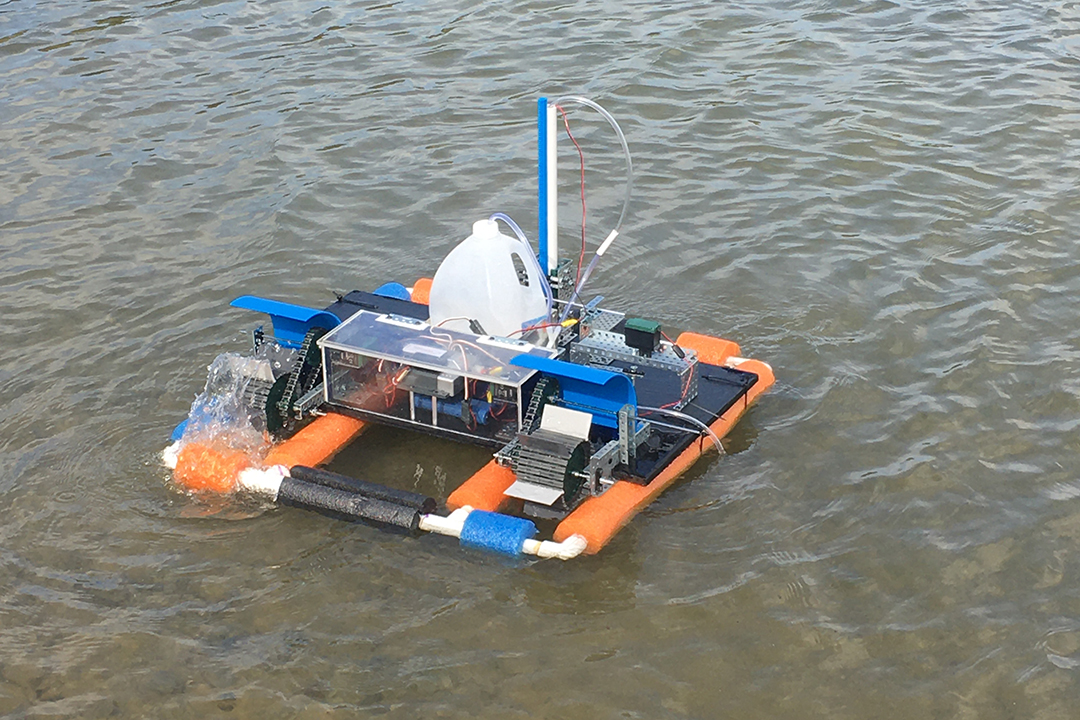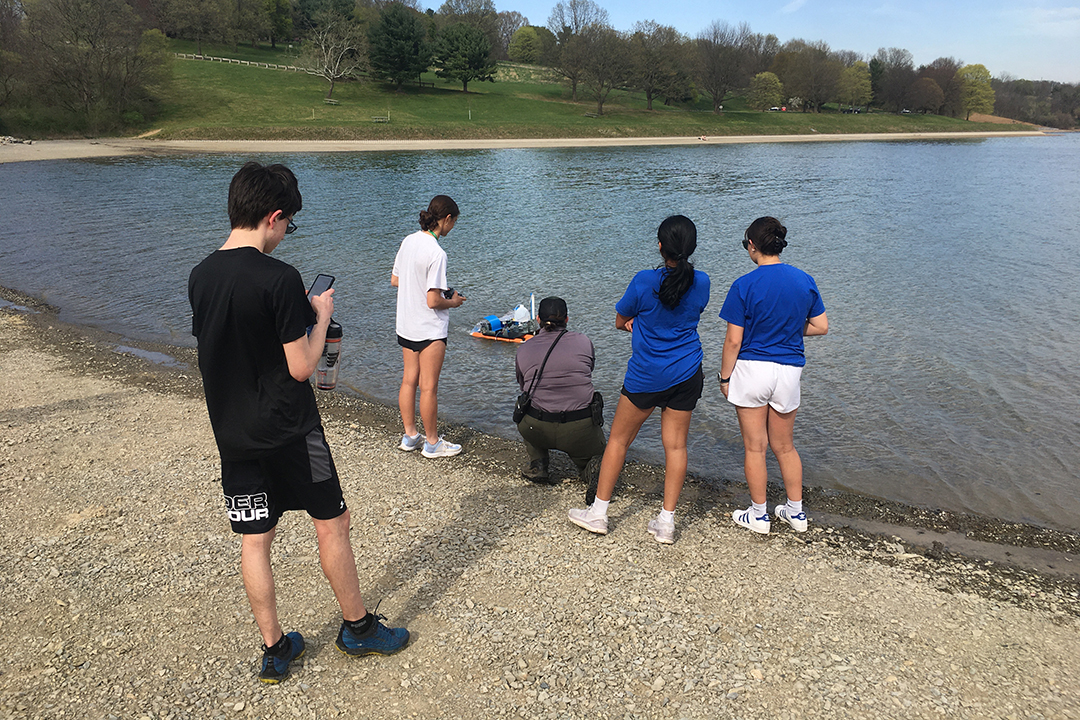
From left: Leahnessa Ortiz, Zak Kauffman, Hansika Kunduru, Peyton Seamans and Olivia Maldonado. Below: Images from the team's prototype test at Blue Marsh Lake.


A group of some of the brightest STEM students at Exeter won the distinct honor of presenting their design and working prototype of a water-sampling remotely operating vehicle (or ROV) in the ninth annual Governor’s STEM Competition--a statewide competition that challenges student teams from across the state to research, design and present a device or project that can make the quality of life better for Pennsylvanians by accomplishing a series of practical tasks that can fulfill real-world needs. Out of more than 60 entries from across the state, Exeter's team was named a Grand Champion and placed among the top teams in the state.
Exeter's team, who was selected and advised by Mr. Zachary Potter, consisted of Leahnessa Ortiz, Zak Kauffman, Hansika Kunduru, Peyton Seamans and Olivia Maldonado, who worked with Army Corps of Engineers representatives from Blue Marsh Lake to design and create a prototype meant to be used as part of Blue Marsh's harmful algae bloom (HABs) management program. "The device the team designed allows park rangers at Blue Marsh to conduct water sampling at the swim beach and other areas of the lake without having to enter the water and potentially come in contact with harmful cyanotoxins produced by the harmful algae bloom. In the summer, this sampling is required multiple times each week, and currently requires park rangers to wade into water chest deep to take samples," said Mr. Potter.
In the 10 years Mr. Potter's been advising the Governor's STEM team, this is the first year that one of his teams has qualified for the state-level championship. Additionally, he said, it's the first time that a team he's advised has ever been able to deliver and test a completed prototype of their design to their real-world partner, which is a requirement of the competition as teams are required to meet with a member of their local community or business to develop a solution to a real problem rooted in the community. This helps create an authentic experience for them, while providing opportunities for them to learn more about career pathways and employment opportunities based in STEM.
The theme for this year's competition was "Innovating the Commonwealth through Collaboration and Computing." In a press release announcing the winners, Acting Secretary of Education Dr. Khalid N. Mumin congratulated Exeter and the other 19 winners and said, "The thought and innovation that went into this year’s projects continues to show us why Pennsylvania has long been seen as a national leader in STEM. The Commonwealth is fortunate to have such talented, knowledgeable, and creative students.”
